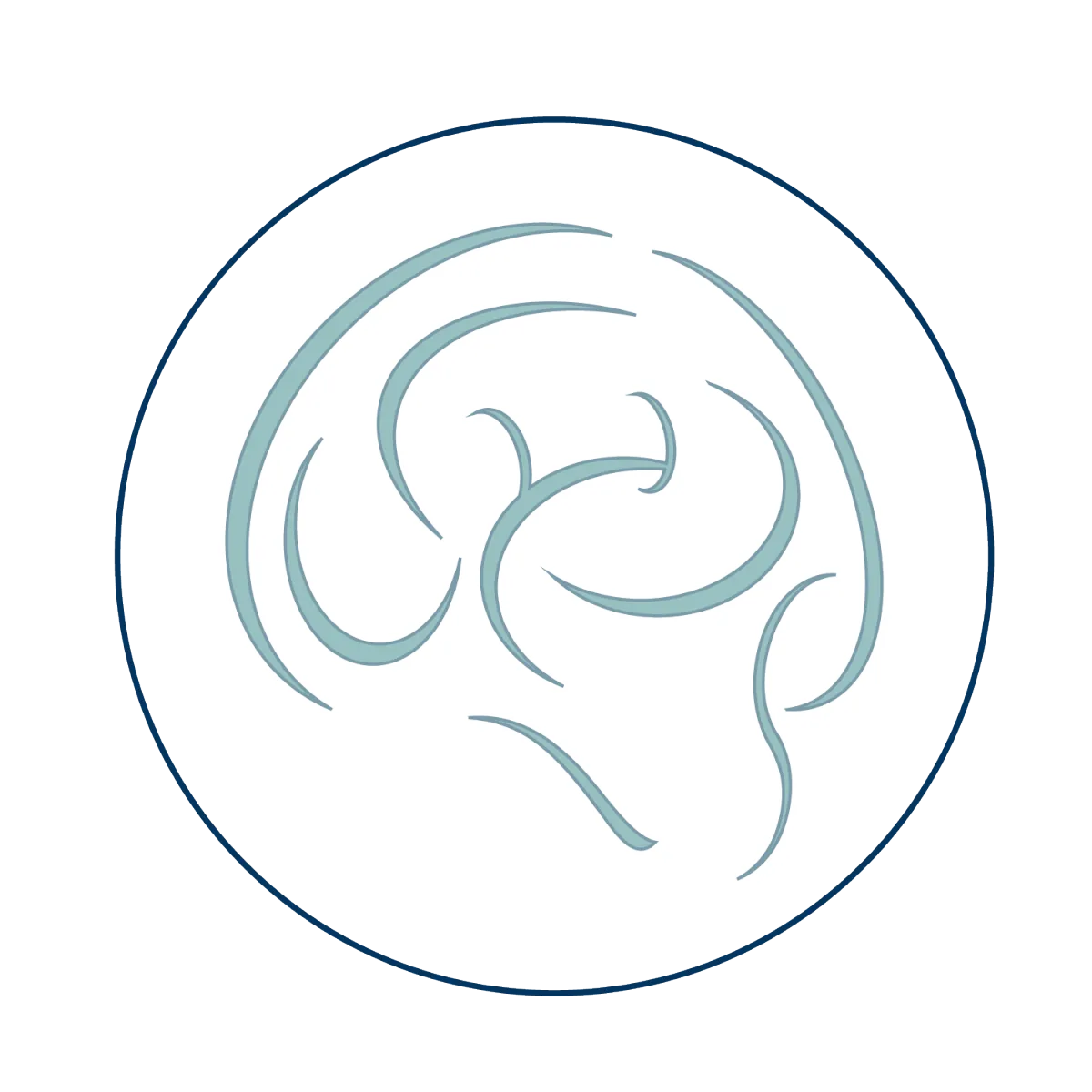Welcome to the Brain & Faith Blog
This is where science and Scripture meet to help you find clarity, calm, and confidence, one practical step at a time. Whether you're feeling mentally overloaded, spiritually disconnected, or just craving a bit more peace in your day, you'll find simple, brain-based strategies and faith-filled insights to guide the way. Everything here is designed to help you renew your mind, restore your energy, and reconnect with the life God designed you to live.

The Traveling Brain: How New Places Rewire Your Mind for Growth
Standing at the edge of the Grand Canyon, watching the sunrise paint ancient rock layers in brilliant oranges and reds, you feel something shift inside you. Your everyday worries seem smaller, your perspective broader, and your sense of wonder awakened. This isn't just a poetic moment - it's your brain literally changing in response to novel experiences. Travel doesn't just create memories; it rewires your neural pathways, enhances cognitive flexibility, and can even slow brain aging. For women seeking mental clarity and renewed perspective, understanding how travel affects your brain can help you harness its transformative power more intentionally.
The Neuroscience of Travel
Neuroplasticity and Novel Experiences
Travel provides your brain with exactly what it needs to form new neural pathways: novelty, challenge, and sensory richness. When you encounter unfamiliar sights, sounds, tastes, and experiences, your brain responds by creating new connections and strengthening existing ones.
Environmental Enrichment: Research shows that exposure to enriched, complex environments - exactly what travel provides - promotes the growth of new brain cells and increases the density of neural connections. This process, called neuroplasticity, keeps your brain flexible and resilient throughout life.
Cognitive Reserve Building: Travel experiences contribute to cognitive reserve - your brain's ability to maintain function despite aging or injury. People with higher cognitive reserve, often built through diverse experiences like travel, show better protection against cognitive decline and dementia.
The Default Mode Network Reset
When you're in familiar environments, your brain operates largely on autopilot, using well-established neural pathways. Travel disrupts this automatic processing, forcing your brain to pay attention and process information more actively.
Mindful Awareness: In new environments, your brain shifts from default mode (mind-wandering, rumination) to focused attention. This shift can break cycles of anxious thinking and provide relief from mental loops that contribute to stress and depression.
Present Moment Engagement: Travel naturally promotes mindfulness as you navigate unfamiliar situations, taste new foods, and take in different landscapes. This present-moment awareness has been shown to reduce anxiety and improve overall mental well-being.
Memory Formation and Consolidation
Travel creates what psychologists call "flashbulb memories" - vivid, detailed memories that are encoded more strongly than routine experiences. This happens because novel experiences trigger the release of dopamine and norepinephrine, neurotransmitters that enhance memory formation.
Autobiographical Memory: Travel experiences become important markers in your personal narrative, helping you construct a richer sense of identity and life story. These memories often serve as sources of meaning and resilience during difficult times.
Memory Palace Effect: Navigating new environments exercises your spatial memory and hippocampus - the brain region crucial for learning and memory. This mental exercise can improve memory function in other areas of life.
The Psychological Benefits of Travel
Stress Reduction and Cortisol Regulation
While travel can initially increase stress (planning, logistics, unfamiliarity), it ultimately provides powerful stress relief benefits that can last for weeks after returning home.
Cortisol Reset: Breaking from routine and experiencing positive novel experiences helps reset your stress hormone levels. Studies show that vacation benefits can last up to five weeks, with improvements in mood, energy, and stress levels.
Perspective Shift: Travel provides psychological distance from daily stressors, allowing you to see problems from a new vantage point. Often, challenges that seemed overwhelming at home appear more manageable when viewed from a different context.
Enhanced Creativity and Problem-Solving
Exposure to different cultures, ways of thinking, and problem-solving approaches enhances cognitive flexibility - your brain's ability to switch between different concepts and think about multiple concepts simultaneously.
Cultural Intelligence: Navigating different cultural norms and communication styles exercises your brain's adaptability and enhances your ability to see situations from multiple perspectives.
Creative Connections: Travel experiences provide your brain with a rich database of images, concepts, and experiences to draw from when generating creative solutions. Many breakthrough insights occur when the mind is relaxed and exposed to new stimuli.
Confidence and Self-Efficacy
Successfully navigating new environments, overcoming travel challenges, and adapting to unfamiliar situations builds confidence and self-efficacy - your belief in your ability to handle whatever life throws at you.
Resilience Building: Each travel challenge you overcome - from missed flights to language barriers - strengthens your resilience and problem-solving skills. These experiences create a mental library of "I can handle this" moments that serve you in all areas of life.
Comfort Zone Expansion: Travel naturally pushes you outside your comfort zone in manageable ways, gradually expanding your sense of what's possible and comfortable for you.
The Dark Side: When Travel Becomes Stressful
Travel Anxiety and Overwhelm
Not all travel is brain-healthy. Overpacked itineraries, constant stimulation, and high-stress travel can actually harm your mental well-being and cognitive function.
Chronic Stress Response: When travel becomes a source of chronic stress rather than enrichment, it can elevate cortisol levels, impair memory formation, and contribute to anxiety and exhaustion.
Decision Fatigue: Constantly making decisions about where to go, what to eat, and how to spend your time can deplete your mental resources and leave you feeling overwhelmed rather than refreshed.
FOMO and Comparison: Social media has created pressure to have "Instagram-worthy" travel experiences, leading to anxiety, overspending, and missing the actual benefits of travel while focusing on documentation.
Jet Lag and Circadian Disruption
Crossing time zones disrupts your circadian rhythms, which can affect mood, cognitive function, and overall well-being for days or weeks.
Sleep Quality Impact: Poor sleep due to jet lag or unfamiliar sleeping environments can negate many of travel's cognitive benefits and leave you feeling worse than before you left.
Digestive Disruption: Changes in eating schedules, food types, and meal timing can affect your gut microbiome, which in turn influences mood and cognitive function through the gut-brain axis.
Brain-Healthy Travel Strategies
Pre-Travel Preparation
Gradual Schedule Adjustment: For trips crossing multiple time zones, begin adjusting your sleep schedule 3-4 days before departure to minimize jet lag impact.
Stress Reduction Planning: Handle as much logistics as possible before departure to reduce travel-day stress. This includes checking in online, packing early, and having backup plans for potential disruptions.
Mindset Preparation: Set realistic expectations and frame potential challenges as adventures rather than problems. This mental preparation can significantly impact how your brain processes travel experiences.
During Travel: Maximizing Brain Benefits
Mindful Exploration: Instead of rushing through attractions, spend time really observing and engaging with new environments. This deeper engagement promotes stronger memory formation and greater neuroplastic benefits.
Local Interaction: Engage with local people when possible. These social interactions provide cultural learning and exercise your brain's social cognition networks.
Sensory Engagement: Consciously engage all your senses - taste local foods, listen to regional music, feel different textures, and notice unique scents. This multi-sensory engagement creates richer neural pathways.
Physical Activity: Incorporate walking, hiking, or other physical activities into your travel. Exercise enhances neuroplasticity and helps consolidate the memories you're forming.
Balancing Stimulation and Rest
Slow Travel Principles: Allow time for experiences to sink in rather than cramming too much into each day. Your brain needs processing time to form lasting memories and insights.
Quiet Reflection Time: Build in periods of quiet reflection - whether through journaling, meditation, or simply sitting in a beautiful place without distractions. This processing time is when many travel insights occur.
Digital Boundaries: While it's tempting to document everything, excessive phone use can prevent you from fully experiencing and encoding travel memories. Set specific times for photos and social media rather than constant documentation.
Travel as Spiritual Practice
There's something profound about witnessing the vastness of creation - standing before an ancient cathedral, watching waves crash against cliffs, or seeing stars unpolluted by city lights. These moments naturally evoke awe and wonder, connecting us to something greater than ourselves.
Encountering the Sacred: Travel often provides encounters with the sacred - whether in formal religious sites or in moments of natural beauty that reveal the artistry of creation. These experiences can deepen faith and provide perspective on life's challenges.
Gratitude and Perspective: Experiencing different ways of life often cultivates gratitude for what we have while also expanding our understanding of human resilience and joy. This broader perspective can transform how we approach our daily lives.
Types of Brain-Healthy Travel
Nature-Based Travel
Forest Bathing: Spending time in forests has been shown to reduce cortisol levels, lower blood pressure, and improve mood. The Japanese practice of "shinrin-yoku" (forest bathing) demonstrates measurable health benefits from immersive nature experiences.
Ocean and Water Environments: The sound of waves, negative ions from moving water, and the vastness of ocean views all contribute to stress reduction and mental clarity.
Mountain and High-Altitude Benefits: Higher altitudes can improve cognitive function in some people, and mountain environments often provide the perfect combination of physical challenge and natural beauty.
Cultural Immersion Travel
Language Learning: Attempting to communicate in a foreign language exercises multiple brain regions simultaneously and can improve cognitive flexibility and executive function.
Cultural Practices: Participating in local customs, festivals, or traditions provides rich sensory and cultural learning experiences that create lasting neural changes.
Historical Exploration: Learning about different historical periods and civilizations exercises your brain's ability to understand complex narratives and different perspectives.
Adventure and Challenge Travel
Controlled Risk-Taking: Activities like hiking challenging trails, trying new foods, or navigating unfamiliar transportation systems provide manageable challenges that build confidence and resilience.
Physical Challenges: Adventure travel that includes physical challenges combines the benefits of exercise with novel experiences, maximizing neuroplastic benefits.
Travel for Different Life Stages
Solo Travel Benefits
Solo travel provides unique brain benefits by forcing you to rely entirely on your own problem-solving skills and decision-making abilities.
Self-Reliance Building: Navigating challenges alone builds confidence and self-efficacy in ways that group travel cannot.
Introspection Opportunities: Solo travel provides natural opportunities for self-reflection and personal growth that can lead to important life insights.
Social Skill Development: Traveling alone often leads to more interactions with locals and other travelers, exercising your social cognition skills.
Family Travel Considerations
Modeling Curiosity: When parents approach travel with curiosity and openness, children learn to see new experiences as opportunities rather than threats.
Shared Memory Creation: Family travel creates shared experiences that become part of family identity and provide connection points for years to come.
Educational Opportunities: Travel provides real-world learning experiences that can enhance children's cognitive development and cultural understanding.
Travel for Older Adults
Cognitive Protection: Travel's cognitive challenges and novel experiences may help protect against age-related cognitive decline.
Social Connection: Group travel or travel that involves meeting new people can combat isolation and loneliness, which are risk factors for cognitive decline.
Physical Activity: Many forms of travel naturally incorporate walking and physical activity, which are crucial for brain health in aging.
Practical Travel Planning for Brain Health
Choosing Destinations
Personal Interest Alignment: Choose destinations that align with your personal interests and values. You're more likely to engage deeply with places that genuinely fascinate you.
Optimal Challenge Level: Select destinations that provide an appropriate level of challenge - enough novelty to stimulate growth without so much stress that you can't enjoy the experience.
Seasonal Considerations: Consider how seasonal factors (weather, daylight hours, local events) might affect your experience and well-being.
Budget-Conscious Brain-Healthy Travel
Local Exploration: You don't need to travel far to gain brain benefits. Exploring areas within driving distance can provide novelty and enrichment at a fraction of the cost.
Off-Season Travel: Traveling during off-peak times often provides better prices and less crowded experiences, allowing for deeper engagement with destinations.
Slow Travel Economics: Staying longer in fewer places often costs less than rapid destination-hopping and provides greater brain benefits through deeper immersion.
Health and Safety Considerations
Medical Preparation: Ensure you have necessary medications, health insurance coverage, and any required vaccinations well before departure.
Mental Health Support: If you have anxiety or other mental health conditions, plan strategies for managing symptoms while traveling and know how to access help if needed.
Emergency Planning: Having clear emergency plans can reduce travel anxiety and allow you to focus on enjoying the experience.
Post-Travel Integration
Memory Consolidation
Reflection and Journaling: Writing about your travel experiences helps consolidate memories and extract insights that might otherwise be lost.
Photo Organization: Organizing and reviewing photos helps reinforce memories and can provide ongoing mood benefits long after the trip ends.
Sharing Stories: Telling others about your experiences helps consolidate memories and can inspire others to seek their own enriching travel experiences.
Applying Travel Insights
Lifestyle Integration: Consider how insights gained during travel can be applied to your daily life. Perhaps you discovered the joy of walking everywhere, the pleasure of eating slowly, or the value of talking to strangers.
Perspective Maintenance: Travel often provides perspective on what's truly important. Find ways to maintain this broader perspective in your daily routine.
Planning Future Adventures: Use the motivation and insights from one trip to plan future enriching experiences, whether local or distant.
Overcoming Travel Barriers
Financial Constraints
Creative Alternatives: House-sitting, home exchanges, or volunteering can provide travel experiences at reduced costs.
Local Adventures: Explore areas within a few hours of home that you've never visited. Often, we overlook amazing experiences in our own regions.
Gradual Saving: Set up automatic savings specifically for travel experiences, treating them as investments in your mental health and personal growth.
Time Limitations
Micro-Adventures: Even day trips or weekend getaways can provide brain benefits when approached with curiosity and openness.
Staycations with Intention: Approach local exploration with the same mindset you'd bring to international travel - curiosity, openness, and willingness to try new things.
Physical Limitations
Accessible Travel Options: Many destinations and travel companies now specialize in accessible travel experiences that accommodate various physical limitations.
Adapted Adventures: Focus on the types of travel experiences that work for your physical situation rather than lamenting what you can't do.
The Long-Term Impact of Travel on Brain Health
Cumulative Benefits
Regular travel experiences throughout life contribute to cognitive reserve and may provide protection against age-related cognitive decline. Each journey adds to your brain's library of experiences and problem-solving strategies.
Resilience Building: The cumulative effect of successfully navigating travel challenges builds a deep sense of resilience and adaptability that serves you in all areas of life.
Expanded Worldview: Regular exposure to different cultures, landscapes, and ways of life creates a more nuanced and flexible worldview that enhances decision-making and empathy.
Creating a Travel Mindset at Home
The benefits of travel don't have to be limited to when you're actually traveling. You can cultivate a "travel mindset" in your daily life:
Curiosity Practice: Approach familiar environments with fresh eyes, noticing details you usually overlook.
Routine Disruption: Regularly break your routines in small ways - take a different route to work, try a new restaurant, or visit a local museum.
Learning Orientation: Maintain the learning mindset that travel naturally promotes by regularly seeking new knowledge and experiences.
Moving Forward with Intention
Travel has the power to literally rewire your brain for greater flexibility, creativity, and resilience. But this transformation doesn't happen automatically - it requires intention, openness, and the willingness to step outside your comfort zone.
Whether you're planning an international adventure or exploring a nearby town you've never visited, approach travel as an opportunity for growth and discovery. Pay attention to how new experiences affect your mood, perspective, and sense of possibility. Notice which types of travel energize you and which leave you feeling drained.
Remember that the goal isn't to become a constant traveler or to have the most exotic experiences. It's to use travel - in whatever form is accessible to you - as a tool for maintaining brain health, gaining perspective, and cultivating the sense of wonder that keeps life rich and meaningful.
Your brain craves novelty, challenge, and beauty. Travel provides all three in abundance, offering a natural prescription for mental well-being that no medication can replicate. The question isn't whether you can afford to travel - it's whether you can afford not to seek the enriching experiences that keep your mind flexible, your perspective broad, and your sense of wonder alive.
For more strategies on supporting your brain health through lifestyle choices and creating enriching experiences, explore our Cognitive Reboot guide. If you're ready for personalized support in creating a lifestyle that promotes mental clarity and growth, consider a free clarity call.
Brain Health Matters, LLC
Helping busy minds find peace through faith and neuroscience.
© 2025 Brain Health Matters, LLC. All rights reserved.
Terms & Conditions

